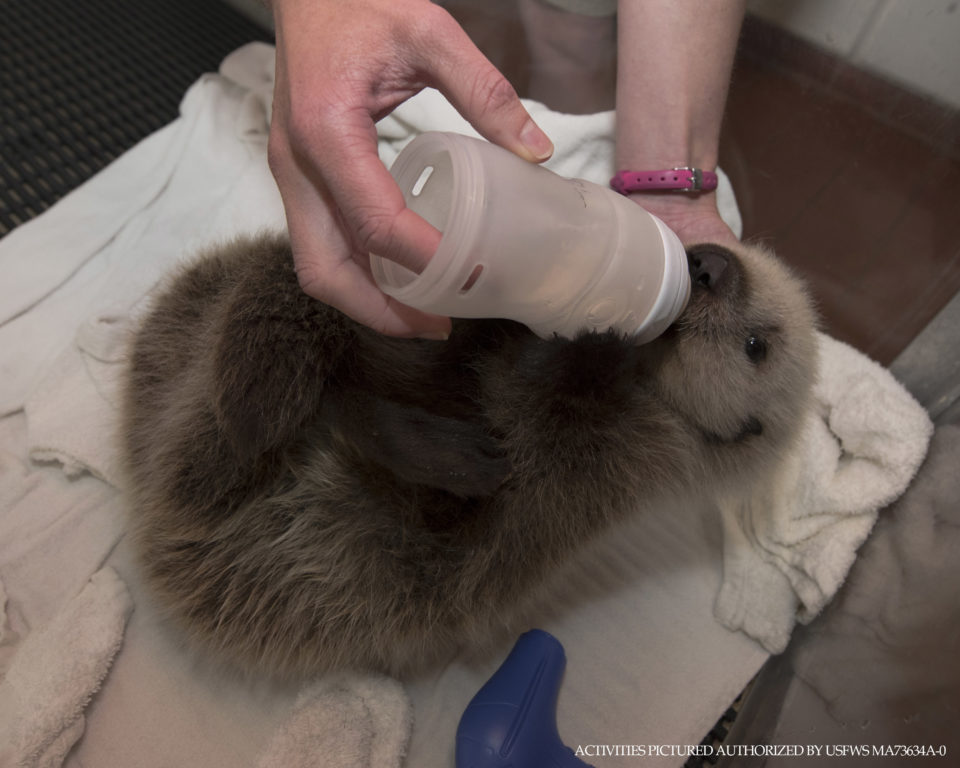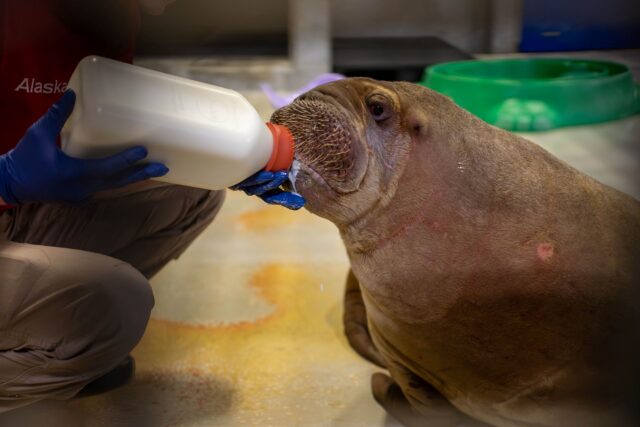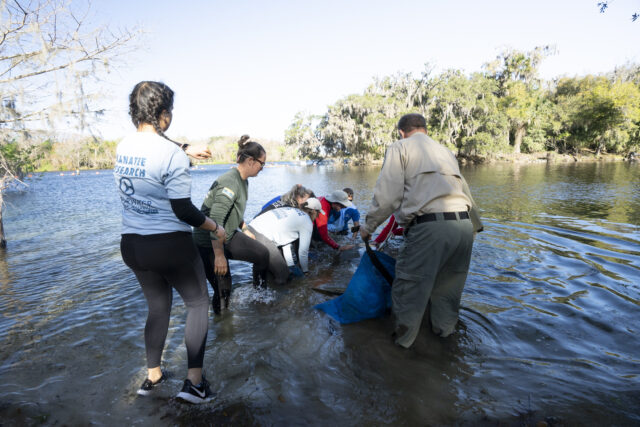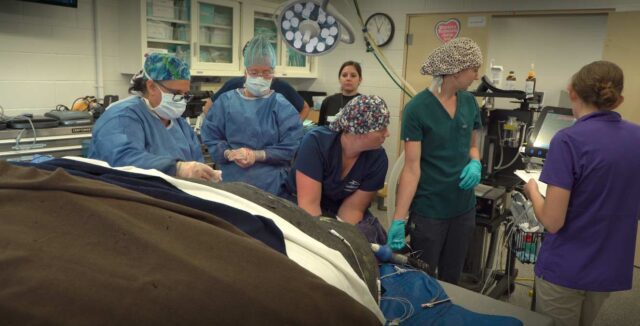SeaWorld San Diego is giving a second chance at life to a five-week-old female northern sea otter pup named Cinder orphaned near Homer, Alaska on Aug. 18.
Rescued after it was found stranded against rocks by strong currents, the five-pound pup was initially taken to the Homer Vet Clinic before being transferred to the Alaska SeaLife Center (ASLC) in Seward, Alaska. Arriving at the ASLC dehydrated and underweight, Cinder quickly learned to feed from a bottle and her condition stabilised.
Cinder, deemed non-releasable by the U.S. Fish & Wildlife Service, was flown from Alaska to SeaWorld San Diego on Saturday, Sept. 7. The pup is being cared for by the SeaWorld’s animal Rescue Team and veterinarians round-the-clock at the park’s sea otter nursery. Her condition is good and she is adjusting well to her new home. Her diet consists of a specialised baby otter milk formula and she is fed every three hours. SeaWorld’s animal care staff, acting as Cinder’s surrogate mother, is also helping her learn how to swim and groom herself. She will remain at the nursery for the time being, but eventually will be introduced to SeaWorld’s four other resident female sea otters: Mocha, Coco, Clover and Pumpkin, who range in age from five to nine years old. These otters were also rescued as orphaned pups. Otters that remain in human care at zoological facilities like SeaWorld play a vital role as ambassadors for their wild counterparts. It is hoped that a park guests will be able to view Cinder in the near future.
SeaWorld San Diego and the Alaska SeaLife Center have had a long partnership and have collaborated together on several marine animal rescue and rehabilitation projects.
So far in 2019, SeaWorld has come to the aid of 841 ill, injured or stranded marine animals (167 California sea lions, 19 northern elephant seals, eight harbor seals, eight fur seals, five dolphins, one sea turtle and 633 marine birds). SeaWorld San Diego alone has rescued more than 20,000 animals over the last 55 years and SeaWorld parks as a whole have rescued more than 35,000.
Back to news


